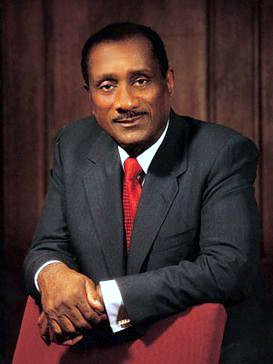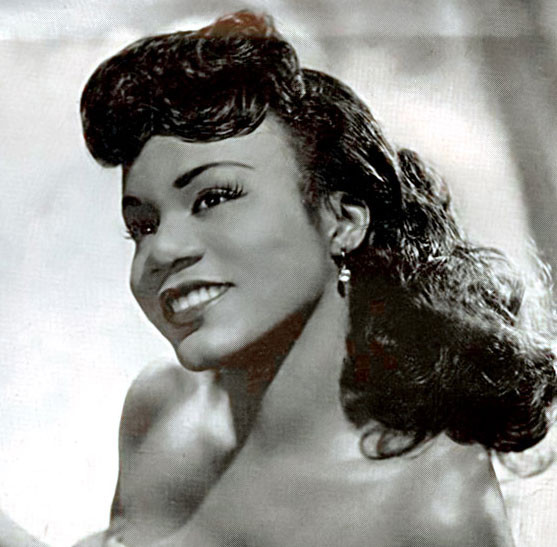Whether it’s music, books, movies, or fashion, Black people have set the standard and are responsible for the modern-day culture, including the beauty industry. Black women have left their mark in this diverse industry.
Whether it was through hair, makeup, magazines, or modeling, these individuals stamped their legacy in the opulent world of beauty. Although America has maintained European/white beauty standards, Black people have often contributed to the beauty world.
There are many but let’s talk about 5…
Marjorie Joyner (Oct. 24, 1896 – Dec. 27, 1994)

Marjorie Joyner is responsible for one of many hair dryer prototypes. In 1928, Joyner filed a patent for the permanent wave machine. In her words, “the object of the invention is the construction of a simple machine that will wave the hair of both white and colored women.” In 1916, she graduated from beauty school and opened up her own salon in Chicago. Marjorie Joyner also helped create the first cosmetology laws in Illinois. In 1945, Joyner and Mary Bethune McLeod co-founded the United Beauty School owners and teachers association. Joyner also co-founded the Alpha Chi Pi Omega Sorority and Fraternity to create a cosmetology network. She continued to make strides in the world of cosmetology until her death in 1994.
John H. Johnson (Jan.19, 1918 – Aug. 8, 2005)

The father of black publication, John H. Johnson was a businessman who founded Johnson Publishing company in 1942. The company has published black entertainment magazines such as Negro’ s Digest, Ebony and Jet magazines. Not only did Johnson have a flourishing publishing company, he also owned Supreme Beauty Products and Fashion Fair cosmetics. The cosmetics company was the largest black-owned cosmetics company in the world at the time. Their goal was to provide inclusive makeup for black women. Johnson has achieved numerous accolades, including the Spingarn Medal to the Most Outstanding Black Publisher in History Award from the National Newspaper Publishers Association, the presidential medal of freedom, and Johnson Publishing was named the number one black business by Black Enterprise four times. We have Johnson to thank for blazing the trail in black publication.
Donyale Luna (Aug. 31, 1945 – May 17, 1979)

Before Naomi and Tyra, there was Donyale Luna. Luna is considered the first black model and the first to be featured on magazine covers like British Vogue and Harper’s Bazaar. Luna captivated the nation with her 5’11 stature, owl face, almond eyes and spindle-like body. Named “the reincarnation of Nefertiti” by artist Salvador Dali, the Detroit beauty experienced an instant career unheard of by any other model at the time. In the 1960’s she was the face of a new age. Unfortunately, Luna is now a forgotten relic of the fashion industry. However, in 2020, Zendaya paid homage to the legend in a black and white Essence photoshoot, bringing attention to the once irresistible muse.
Christina Jenkins (Dec. 25, 1920 – Nov. 23, 2003)

Disclaimer: the image above is subjective
Christina Jenkins is credited for her 1951 patent of sew-in weave extensions. Jenkins worked for a wig-making factory and was trying to find a method to stabilize wigs and hairpieces. Eventually, she created the sew-in technique to secure “commercial” hair on natural hair. Jenkins called the technique Hairweev. The inventress sought out to teach her methods and taught her Hairweev technique in hair shows all across Europe. Afterward, she ran her own salon. Jenkins owned and managed Christina’s HairWeeve Penthouse Salon in Shaker Heights, Cleveland up until 1993. We have this pioneer to thank for the sew-in and further advancement of hair care and styling.
Madame C.J. Walker ( Dec. 23, 1867- May 25, 1919)

We cannot forget the most influential trailblazer in haircare. She made history as the first Black millionaire in the early 1900’s. Madam C.J. Walker’s claim to fortune was her hair care line made for black women. After experiencing hair loss of her own, the entrepreneur created the “Walker system” to grow hair back. This system included scalp preparation, lotions, pomade, and iron combs. Walker’s brand transformed from a one-man-band into a haircare conglomerate. Walker built a beauty school and provided job security for many African American women at the time. In her wealth, the entrepreneur gave generously to her community: donating to the Black YMCA, the NAACP and women scholarships at Tuskegee Institute.

